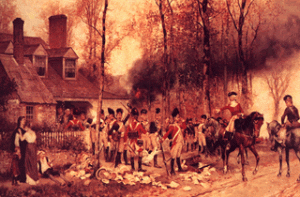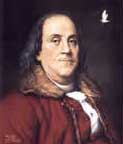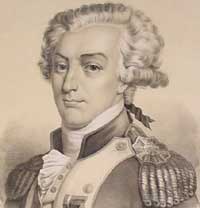
American revolution: English soldiers search a settler’s house (1770s)
Why did the Americans revolt?
In 1763 AD England won the French and Indian War against France (which had been fought mainly in North America), and so the English-speaking settlers on the East Coast could stop worrying that they were about to be taken over by France.
Algonquin and Iroquois
Hanoverians in England
Louis XV in France
All our American history articles
To pay for that war, the English government began to make the English-speaking settlers pay higher taxes. Paying taxes (even to pay for the war they wanted) made the settlers angry. They were especially angry because they couldn’t vote or speak for themselves in England about these taxes. The settlers said this was “taxation without representation” and it was wrong.
The thirteen colonies

A wooden spinning wheel
Boycotting English stuff
The settlers decided to boycott everything they had been buying from English traders – they would not buy their tea, clothes, glass, paper, and so on (This is when many Americans began to drink coffee).
History of tea
Where did coffee come from?
To show that they meant it, in 1773 the settlers threw a lot of tea on an English ship overboard, into the ocean – we call this the “Boston Tea Party.” Women proudly spun and wove and knitted their own cloth rather than buy machine-made British cloth the way they had before.
Machine-made clothing?
History of knitting
Who fought on which side?
In 1775, two years later, someone (it’s not clear which side) fired the first shots in Massachusetts. England and the United States were now at war. The Iroquois, under their leader Joseph Brant, and the Cherokee decided to help England with the war. They thought the English would stop settlers from moving into their land.
More about the Iroquois
And the Cherokee
About a quarter of the settlers, notably Banastre Tarleton and his troop of “Tarleton’s Raiders,” took the side of England too. Many African-Americans, both slave and free, fought on the side of the British, in the hopes of ending slavery. Quakers tried to stay neutral.
African-Americans and the Constitution
Who were the Quakers?

George Washington
George Washington (named after King George of England) was the commander in chief of the United States’ army. At first he won, and on July 4th, 1776 the United States government published the Declaration of Independence.
Simplified Declaration of Independence
But then the English government sent lots more men to fight (women weren’t allowed), and soon the United States was losing the war.

Benjamin Franklin
French help with the Revolution
At this point, Benjamin Franklin went to Paris and succeeded in getting the new French king, 22-year-old Louis XVI, to send help.
Louis XVI of France
Spain in the 1700s
In 1777 the French navy helped send in lots of weapons for the United States army to use. Then Spain (angry because England had taken Florida) and the Netherlands also came in on the side of France. Nobody was on the side of England. Even some English people were on the side of the United States.
What happened after the Revolution?

The French general Lafayette
By 1781, the United States (with the help of the French general Lafayette, the French navy, and lots of French money) had won several big battles. Even when the English won, they couldn’t get people to support them, or get their navy through to help them. So in October the English army surrendered to George Washington. That was the end of the Revolutionary War.
Thousands of Americans, both black and white, who had supported Britain moved to Canada after the war, where they could keep on being British subjects. So did many Iroquois people. The victorious Americans soon forced the Cherokee, who had also supported the British, off their land.
Learn by doing: hold a debate to decide which side you’d be on
More about the Declaration of Independence
Bibliography and further reading about the American Revolution: